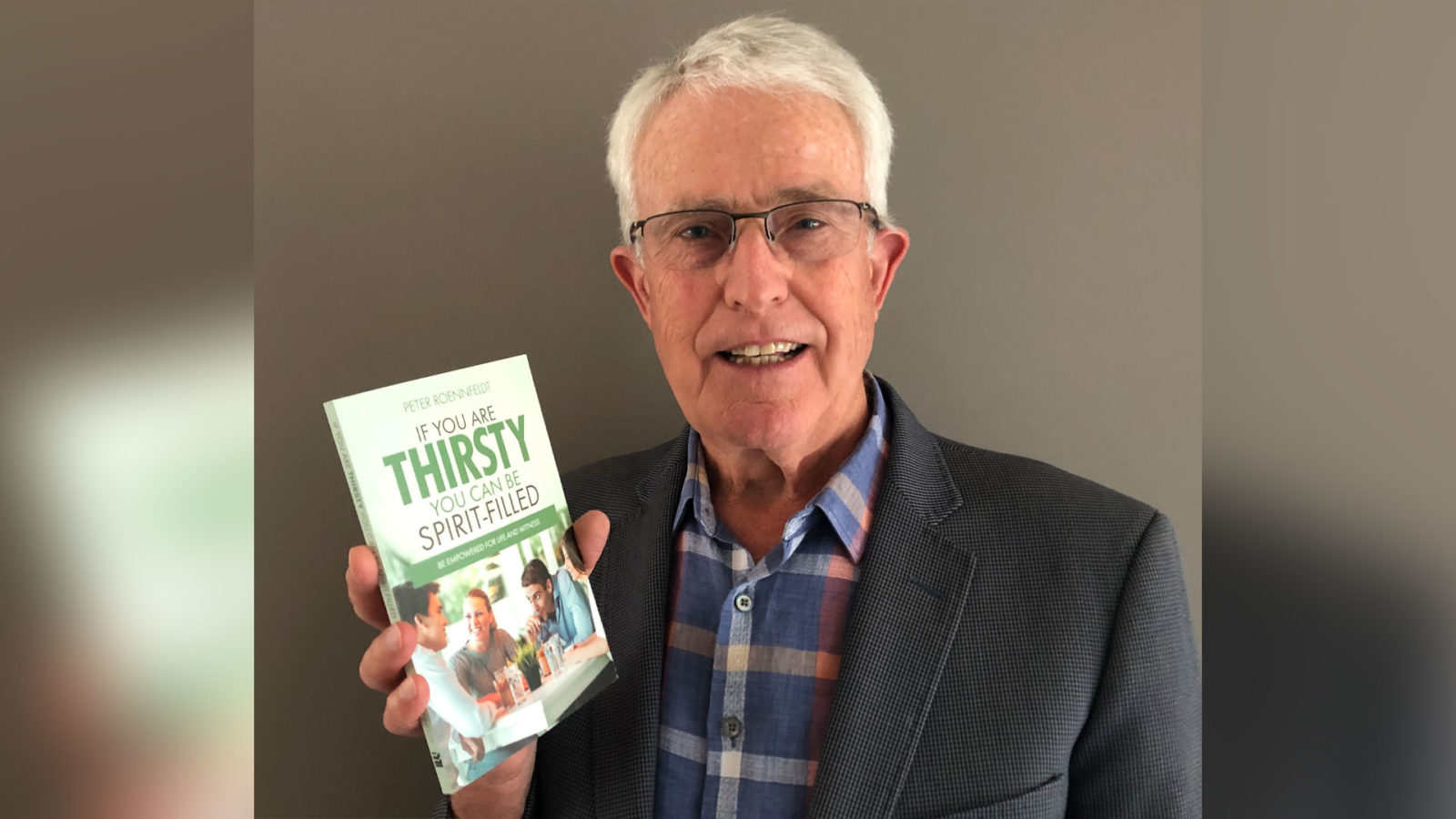Dr Peter Roennfeldt recently released If You Are Thirsty, You Can Be Spirit-filled, a book that returns to a key biblical theme touched on in his four previous books. He talked about the importance of the Holy Spirit for the church and for disciples’ life and witness.
What surprised you amid your process of deep study, thinking and writing for this book?
Perhaps the most significant surprise was that Jesus’ announcement on the last day of the festival of Tabernacles or Sukkot—six months before His crucifixion—was the most important and sensational of His ministry. When He said, “Anyone who is thirsty may come to me! Anyone who believes in me may come and drink!” (John 7:37,38 NLT), He was unequivocally and publicly declaring Himself to be the Saviour and Messiah of the world.
Having climbed the steep steps from the Pool of Siloam to the Temple Mount scores of times, I wanted to tell the story of the water-drawing and water-pouring ceremonies of that day in a way that all could catch the drama and eternal significance of what Jesus was saying about Himself and the Spirit—with the promise of the Spirit living within us and flowing through us as a refreshing stream into our homes, communities and workplaces.
What does a good theology of the Holy Spirit add to our understanding of discipleship?
Every close personal work that God does in our lives, He does through the Person and ministry of the Holy Spirit. Without Him, there is no disciple, disciple-making or growth as disciples. We are totally dependent upon Him. Without Pentecost, Calvary would have no appeal—we would not be drawn to Jesus and the good news of salvation.
We can never live without the Spirit—He sanctifies, seals us as God’s children and sustains us. Through Him we live “in Christ” and Christ lives “in us”—and we enjoy a walk with Jesus that is closer than that which the disciples of Jesus could enjoy when He walked the physical paths with Him.
What does it mean to be “filled by the Holy Spirit”?
Spirit baptism is the unique initiation associated with our conversion and our anointing for disciple-making, while Spirit-filling is the ongoing, repeatable, deepening consequence of our conversion. The New Testament does not speak of a daily baptism of the Spirit, but rather, a daily filling—as Paul’s wrote, “to go on being filled with the Holy Spirit” (see Ephesians 5:18).
Being “filled by the Holy Spirit” is essential for Christian living. Spirit-filling empowers our lives, gives conviction to our witness, and equips us for the specific tasks God has for us as believers. His presence is transformative—leading us, testifying with our hearts that we are God’s children; giving assurance and encouragement—and His filling of our lives can be seen in how we relate to our families, friends and colleagues, and how we share the good news of salvation.
Why do you think that Adventists have often skipped over this topic?
It could be that we “got burnt” in the late-1800s. Some of our pioneers were captivated by Wesley’s idea of “entire sanctification”—a development of a second-century heresy that believers could achieve a holiness superior to the apostles to be ready for Jesus’ return—with the claim that charismatic manifestations and miracles, or a second blessing of the Spirit, was the evidence of this level of holiness.
It was a very divisive time for Adventists. However, by testing all experiences by the Word—including the aberration of holy flesh—the idea of an end-time holiness superior to that of the apostles, along with dramatic miracles and glossolalia being a special evidence of a second blessing of Spirit baptism, were rejected by Seventh-day Adventists. Sadly, it was such a painful time that Adventists largely avoided this theme for almost 100 years—and even now, some are wary, even fearful, and not sure what to think. Tragically much is lost when we misunderstand, neglect—or even reject, Him.
What role does the Holy Spirit play in the collective life of the church?
The church or body of Christ is the creation of the Spirit. Without the Spirit inhabiting the church, it degenerates into being just another institution or corporation. The fellowship or conversation of the Spirit gives warmth and meaning to the gatherings of believers. Church is dry and routine without a conscious awareness of the presence, power and grace of the Spirit. We must speak often of Him—He brings the presence of Jesus and the Father into our lives and fellowship.
A virtual book launch for If You Are Thirsty, You Can Be Spirit-filled is planned for 12 noon (AEDT) on Tuesday, November 17. For your online invitation, register here.
If You Are Thirsty, You Can Be Spirit-filled and other books by Peter Roennfeldt are available from Adventist bookshops in Australia and New Zealand, or online.






